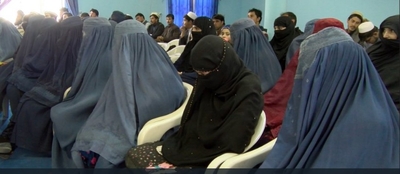Learning Afghanistan’s Lessons
by Phyllis Chesler

The country in which I was once held hostage so very long ago is swiftly returning to the Middle Ages. It has done so many times before. King Amanullah allowed women to remove their veils in the 1920s, a crime for which he was forced into exile in Italy while his country was plunged by Habibullah Kalakani into barbarism.
With the last American soldier now slated to leave Afghanistan by the end of August, the Taliban are already re-instituting their Saudi-style rules about women never being able to leave their homes naked-faced or without a male minder. Broadcasts must be religious chants, intoned by men only. Taliban violence against journalists has increased significantly.
Granted, the United States has already spent too much blood and treasure in Afghanistan to justify our staying any longer, and yet: What about the women? The children? The dissidents? The gays? The inevitable ingathering of the terrorists?
As I’ve written before, the moment the last Western military boot leaves Afghan soil, the Taliban will torch every single shelter for battered women, burn down every schoolhouse for girls, shoot on sight every female broadcaster, politician, police officer, teacher, and physician. Women and girls will again be banished from public view, whether hidden under burqas or kept indoors. Will stoning as a public sport recommence? Will the Taliban practice of keeping underage boy sex slaves continue, but with a vengeance? On our side, will every female parliamentarian or broadcaster, and every male translator who worked with our troops, be airlifted out in a timely fashion?
And what about the Islamist terrorists who will again gather there in caves and cities?
How many American and European feminists are now lining up to sponsor a girl or a woman, or a brave feminist, from Kabul, Herat, Mazar-i-Sharif, Kandahar, Kunduz, Lashkar Gah, Laghman? How many LGBTQIA groups across Europe and America are lining up to offer shelter, education, health care to gays from Afghanistan?
A visitor just suggested that Afghan women will go down fighting. I hope so, but I do not see this happening. Some Afghan women are vowing to fight back with guns and knives. Some have already been in battle. One woman was even a warlord. Their strong suit? No Taliban warrior can bear the idea of being vanquished in battle by a mere woman. “They are frightened of being killed by us, they consider it shameful,” one Afghan woman told the Guardian.
What have we learned from all this? That Afghanistan cannot be modernized? That our own fast-fading ideals about the importance of freedom cannot be transplanted elsewhere? And what, now, is our responsibility to the people of Afghanistan?
According to Foreign Policy, “a newly declassified U.S. intelligence assessment paints a grim picture for the future of women’s rights in Afghanistan.” Senate Foreign Relations Committee Chairman Bob Menendez, D-N.J., said that Senate assistance for Afghanistan will not be forthcoming “if the Taliban (takes a) governing role that ends civil society advances and rolls back women’s rights.” Joint Chiefs of Staff Chairman Mark Milley predicted there would possibly be “some really dramatic, bad possible outcomes” for Afghan forces left on their own against the Taliban. U.S. Secretary of State Antony Blinken went further when he told CNN that “Afghanistan will become a pariah state” if it does “not respect the gains” made for Afghan girls and women.
Please allow me to say that the Taliban will not care. They view infidel nations as the real pariah states. They wish to live under 7th century Shari’a law as they define it.
What, if anything, must we learn from this well-intentioned misadventure?
Afghanistan has a long, long history of barbarism, and one that Westerners might not be able to defeat. Even Afghan Western-educated reformers have never been able to do so in a lasting way.
I also believe Americans must re-adjust our idealism and our hubris, even as we mourn that which we cannot do, at least not at this time. There is something intractable about Islamist regimes. Therefore, we should also offer shelter to as many girls and women as possible, whether or not they have worked with our forces on the ground.
Finally, America must make alliances with India, Pakistan, Uzbekistan, Russia, and China in order to stem the potential tide of terrorism that may be harbored in Afghanistan, enriched by the Taliban-controlled opium trade, and possibly by the long-overdue mining of gas and precious minerals.
If we fail to understand this, and do not succeed in these tasks, surely we risk other Islamist attacks on civilians in the West.